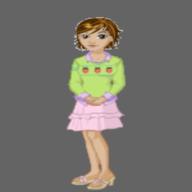english proofreading
2013-09-28 3:41 am
The magician made the girl float in the air . All the audience were amazed.
回答 (7)
2013-09-28 6:54 pm
✔ 最佳答案
The magician made the girl float in the air . All audience were amazed.
2013-10-06 11:03 am
The magician made the girl float to the air. The audience was/were amazed.
were - British English
was - American English
Comment:
我自己喜用 were, I see “audience” as a group of individuals, 觀眾驚嘆魔術師表演, 有人鼓掌, 有人叫好, 甚至有人起立的歡呼 (standing ovation), 各式其式, 用 were 比較適宜, 純個人意見. 我刪除 “All”, 因為audience refers to “a group of people. 有書籍說 You refer to all the people who are watching or listening to a play, concert, film.. etc. as the audience. 如果用 all, 有點多餘.( redundant)
---------------------------------------------------------
Audience (countable noun)
~ a group of people who gather together to listen to something (such as a concert) or watch something (such as a movie or play)
Audience is a group noun. It can take a singular or plural verb.
The audience was/were clearly delighted with the performance.
We always use singular verb to talk about the whole group. For example, we may refer to a group’s size or made-up or how it compares with others.
The audience consists mainly of young girl under sixteen.
A plural verb is more likely when we see the group as individuals, especially when we talk about people’s thoughts or feelings.
The audience don’t understand what the professor is saying.
Audience (countable noun ~ singular)
She would be addressing an audience of three thousand teachers.
The concert attracted a large audience.
Audiences (countable noun ~ plural)
These two programs are both news and current affairs, but they cater for very different audiences.
The band played to huge audiences in Hong Kong and Tokyo.
were - British English
was - American English
Comment:
我自己喜用 were, I see “audience” as a group of individuals, 觀眾驚嘆魔術師表演, 有人鼓掌, 有人叫好, 甚至有人起立的歡呼 (standing ovation), 各式其式, 用 were 比較適宜, 純個人意見. 我刪除 “All”, 因為audience refers to “a group of people. 有書籍說 You refer to all the people who are watching or listening to a play, concert, film.. etc. as the audience. 如果用 all, 有點多餘.( redundant)
---------------------------------------------------------
Audience (countable noun)
~ a group of people who gather together to listen to something (such as a concert) or watch something (such as a movie or play)
Audience is a group noun. It can take a singular or plural verb.
The audience was/were clearly delighted with the performance.
We always use singular verb to talk about the whole group. For example, we may refer to a group’s size or made-up or how it compares with others.
The audience consists mainly of young girl under sixteen.
A plural verb is more likely when we see the group as individuals, especially when we talk about people’s thoughts or feelings.
The audience don’t understand what the professor is saying.
Audience (countable noun ~ singular)
She would be addressing an audience of three thousand teachers.
The concert attracted a large audience.
Audiences (countable noun ~ plural)
These two programs are both news and current affairs, but they cater for very different audiences.
The band played to huge audiences in Hong Kong and Tokyo.
參考: Merriam-Webster English Dictionary
2013-09-29 2:04 am
The magician made the girl float in the air . All the audience was amazed.
(all the audience = single unit)
(all the audience = single unit)
2013-09-28 5:17 pm
I agree that we should delete the word 'All'. Food for thought. Should we use a singular verb 'was' or a plural verb 'were'?
2013-09-28 5:31 am
The magician made the girl float in the air . THE audience were amazed.
2013-09-28 5:19 am
The magician made the girl float to the air . All the audience were amazed.
2013-09-28 5:18 am
Some nouns have no plural forms,look singular (eg:-audience) and some appear to be plural (eg:-spectators);
The proofreading:-
The magician made the girl float in the air.
All the audience and spectators were amazed (adj.).
The proofreading:-
The magician made the girl float in the air.
All the audience and spectators were amazed (adj.).
收錄日期: 2021-04-11 20:00:35
原文連結 [永久失效]:
https://hk.answers.yahoo.com/question/index?qid=20130927000051KK00188


